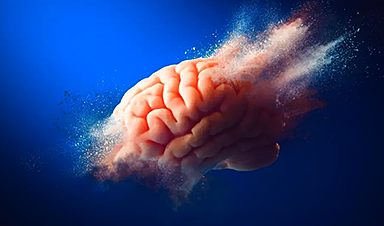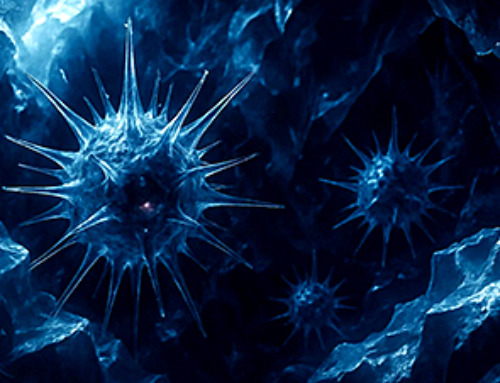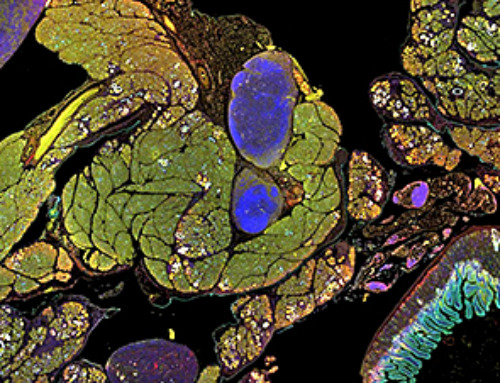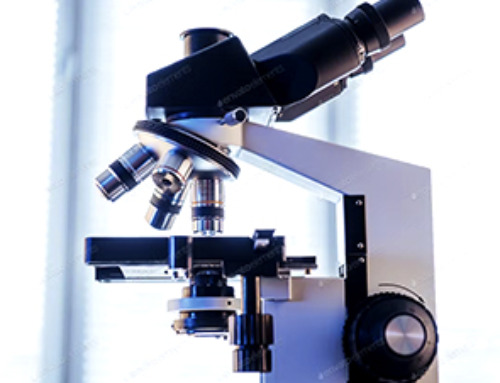What determines whether an individual will develop Alzheimer’s disease, and why do many with the disease’s characteristic toxic amyloid accumulations in the brain never exhibit associated dementia symptoms? These perplexing questions have long puzzled researchers.
Scientists from the University of Pittsburgh School of Medicine seem to have unveiled the answer. According to their groundbreaking research published in Nature Medicine, star-shaped brain cells known as astrocytes play a crucial role in the progression of Alzheimer’s disease.
By testing the blood of more than 1,000 cognitively unimpaired elderly people with and without amyloid pathology, the Pitt-led research team found that only those who had a combination of amyloid burden and blood markers of abnormal astrocyte activation, or reactivity, would progress to symptomatic Alzheimer’s in the future, a critical discovery for drug development aimed at halting progression.
Alzheimer’s disease is a neurodegenerative condition that causes progressive memory loss and dementia, robbing patients of many productive years of life. At the tissue level, the hallmark of Alzheimer’s disease is an accumulation of amyloid plaques—protein aggregates lodged between nerve cells of the brain—and clumps of disordered protein fibers, called tau tangles, forming inside the neurons.
For many decades brain scientists believed that an accumulation of amyloid plaques and tau tangles is not only a sign of Alzheimer’s disease but also its direct culprit. This assumption also led drug manufacturers to heavily invest into molecules targeting amyloid and tau, overlooking the contribution of other brain processes, such as the neuroimmune system.
Recent discoveries by groups like Pascoal’s suggest that the disruption of other brain processes, such as heightened brain inflammation, might be just as important as amyloid burden itself in starting the pathological cascade of neuronal death that causes rapid cognitive decline.
In his previous research, Pascoal and his group found that brain tissue inflammation triggers the spread of pathologically misfolded proteins in the brain and is a direct cause of eventual cognitive impairment in patients with Alzheimer’s disease. Now, almost two years later, researchers revealed that cognitive impairment can be predicted by a blood test.
Astrocytes are specialized cells abundant in the brain tissue. Just as other members of the glia—resident immune cells of the brain—astrocytes support neuronal cells by supplying them with nutrients and oxygen and protecting them from pathogens. But because glial cells don’t conduct electricity and, at first, didn’t seem to play a direct role in how neurons communicate with one another, their role in health and disease had been overlooked. The latest research from Pitt changes that.
“Astrocytes coordinate brain amyloid and tau relationship like a conductor directing the orchestra,” said lead author of the study Bruna Bellaver, Ph.D., postdoctoral associate at Pitt. “This can be a game-changer to the field, since glial biomarkers, in general, are not considered in any main disease model.”
Scientists tested blood samples from participants in three independent studies of cognitively unimpaired elderly people for biomarkers of astrocyte reactivity—glial fibrillary acidic protein, or GFAP—along with the presence of pathological tau. The study showed that only those who were positive for both amyloid and astrocyte reactivity showed evidence of progressively developing tau pathology, indicating a predisposition to clinical symptoms of Alzheimer’s disease.
The findings have direct implications for future clinical trials for Alzheimer’s drug candidates. In aiming to halt disease progression sooner, trials are moving to earlier and earlier stages of pre-symptomatic disease, making correct early diagnosis of Alzheimer’s risk critical for success. Because a significant percentage of amyloid-positive individuals will not progress to clinical forms of Alzheimer’s, amyloid positivity alone is not enough to determine an individual’s eligibility for therapy.
Inclusion of astrocyte reactivity markers, such as GFAP, in the panel of diagnostic tests will allow for improved selection of patients who are likely to progress to later stages of Alzheimer’s and, therefore, help fine-tune the selection of candidates for therapeutic interventions who are more likely to benefit.
News
Studies detail high rates of long COVID among healthcare, dental workers
Researchers have estimated approximately 8% of Americas have ever experienced long COVID, or lasting symptoms, following an acute COVID-19 infection. Now two recent international studies suggest that the percentage is much higher among healthcare workers [...]
Melting Arctic Ice May Unleash Ancient Deadly Diseases, Scientists Warn
Melting Arctic ice increases human and animal interactions, raising the risk of infectious disease spread. Researchers urge early intervention and surveillance. Climate change is opening new pathways for the spread of infectious diseases such [...]
Scientists May Have Found a Secret Weapon To Stop Pancreatic Cancer Before It Starts
Researchers at Cold Spring Harbor Laboratory have found that blocking the FGFR2 and EGFR genes can stop early-stage pancreatic cancer from progressing, offering a promising path toward prevention. Pancreatic cancer is expected to become [...]
Breakthrough Drug Restores Vision: Researchers Successfully Reverse Retinal Damage
Blocking the PROX1 protein allowed KAIST researchers to regenerate damaged retinas and restore vision in mice. Vision is one of the most important human senses, yet more than 300 million people around the world are at [...]
Differentiating cancerous and healthy cells through motion analysis
Researchers from Tokyo Metropolitan University have found that the motion of unlabeled cells can be used to tell whether they are cancerous or healthy. They observed malignant fibrosarcoma cells and [...]
This Tiny Cellular Gate Could Be the Key to Curing Cancer – And Regrowing Hair
After more than five decades of mystery, scientists have finally unveiled the detailed structure and function of a long-theorized molecular machine in our mitochondria — the mitochondrial pyruvate carrier. This microscopic gatekeeper controls how [...]
Unlocking Vision’s Secrets: Researchers Reveal 3D Structure of Key Eye Protein
Researchers have uncovered the 3D structure of RBP3, a key protein in vision, revealing how it transports retinoids and fatty acids and how its dysfunction may lead to retinal diseases. Proteins play a critical [...]
5 Key Facts About Nanoplastics and How They Affect the Human Body
Nanoplastics are typically defined as plastic particles smaller than 1000 nanometers. These particles are increasingly being detected in human tissues: they can bypass biological barriers, accumulate in organs, and may influence health in ways [...]
Measles Is Back: Doctors Warn of Dangerous Surge Across the U.S.
Parents are encouraged to contact their pediatrician if their child has been exposed to measles or is showing symptoms. Pediatric infectious disease experts are emphasizing the critical importance of measles vaccination, as the highly [...]
AI at the Speed of Light: How Silicon Photonics Are Reinventing Hardware
A cutting-edge AI acceleration platform powered by light rather than electricity could revolutionize how AI is trained and deployed. Using photonic integrated circuits made from advanced III-V semiconductors, researchers have developed a system that vastly [...]
A Grain of Brain, 523 Million Synapses, Most Complicated Neuroscience Experiment Ever Attempted
A team of over 150 scientists has achieved what once seemed impossible: a complete wiring and activity map of a tiny section of a mammalian brain. This feat, part of the MICrONS Project, rivals [...]
The Secret “Radar” Bacteria Use To Outsmart Their Enemies
A chemical radar allows bacteria to sense and eliminate predators. Investigating how microorganisms communicate deepens our understanding of the complex ecological interactions that shape our environment is an area of key focus for the [...]
Psychologists explore ethical issues associated with human-AI relationships
It's becoming increasingly commonplace for people to develop intimate, long-term relationships with artificial intelligence (AI) technologies. At their extreme, people have "married" their AI companions in non-legally binding ceremonies, and at least two people [...]
When You Lose Weight, Where Does It Actually Go?
Most health professionals lack a clear understanding of how body fat is lost, often subscribing to misconceptions like fat converting to energy or muscle. The truth is, fat is actually broken down into carbon [...]
How Everyday Plastics Quietly Turn Into DNA-Damaging Nanoparticles
The same unique structure that makes plastic so versatile also makes it susceptible to breaking down into harmful micro- and nanoscale particles. The world is saturated with trillions of microscopic and nanoscopic plastic particles, some smaller [...]
AI Outperforms Physicians in Real-World Urgent Care Decisions, Study Finds
The study, conducted at the virtual urgent care clinic Cedars-Sinai Connect in LA, compared recommendations given in about 500 visits of adult patients with relatively common symptoms – respiratory, urinary, eye, vaginal and dental. [...]





















